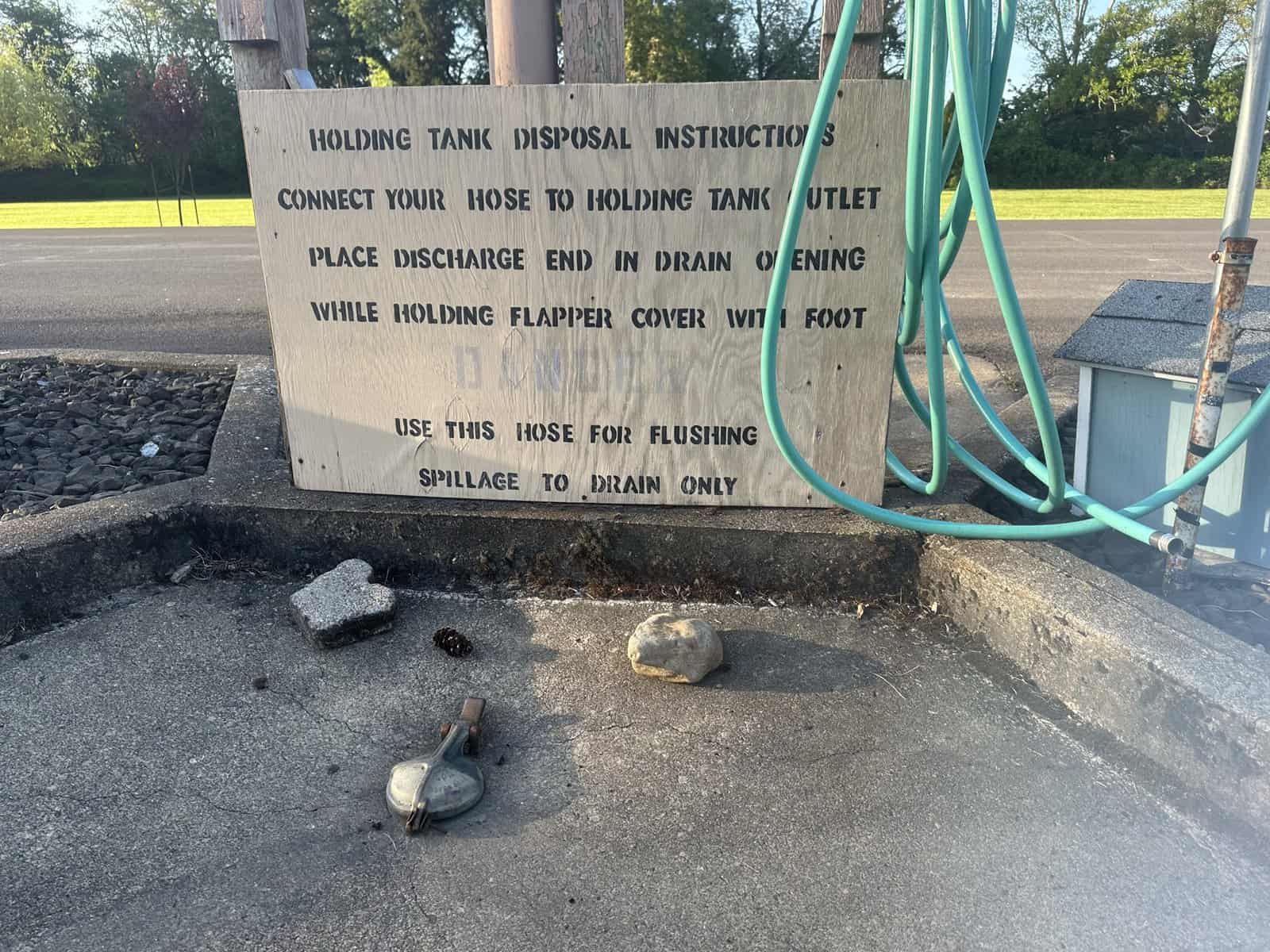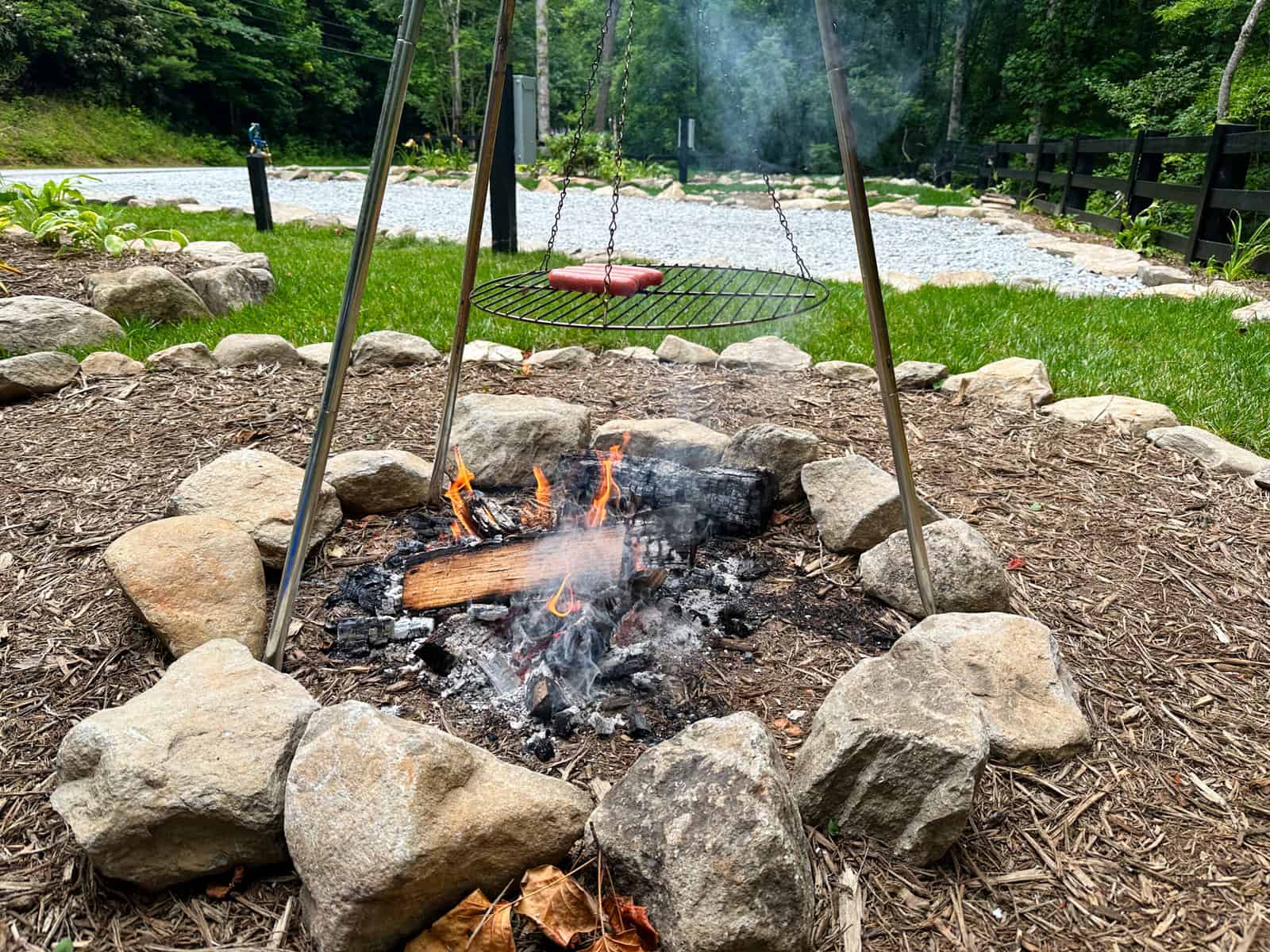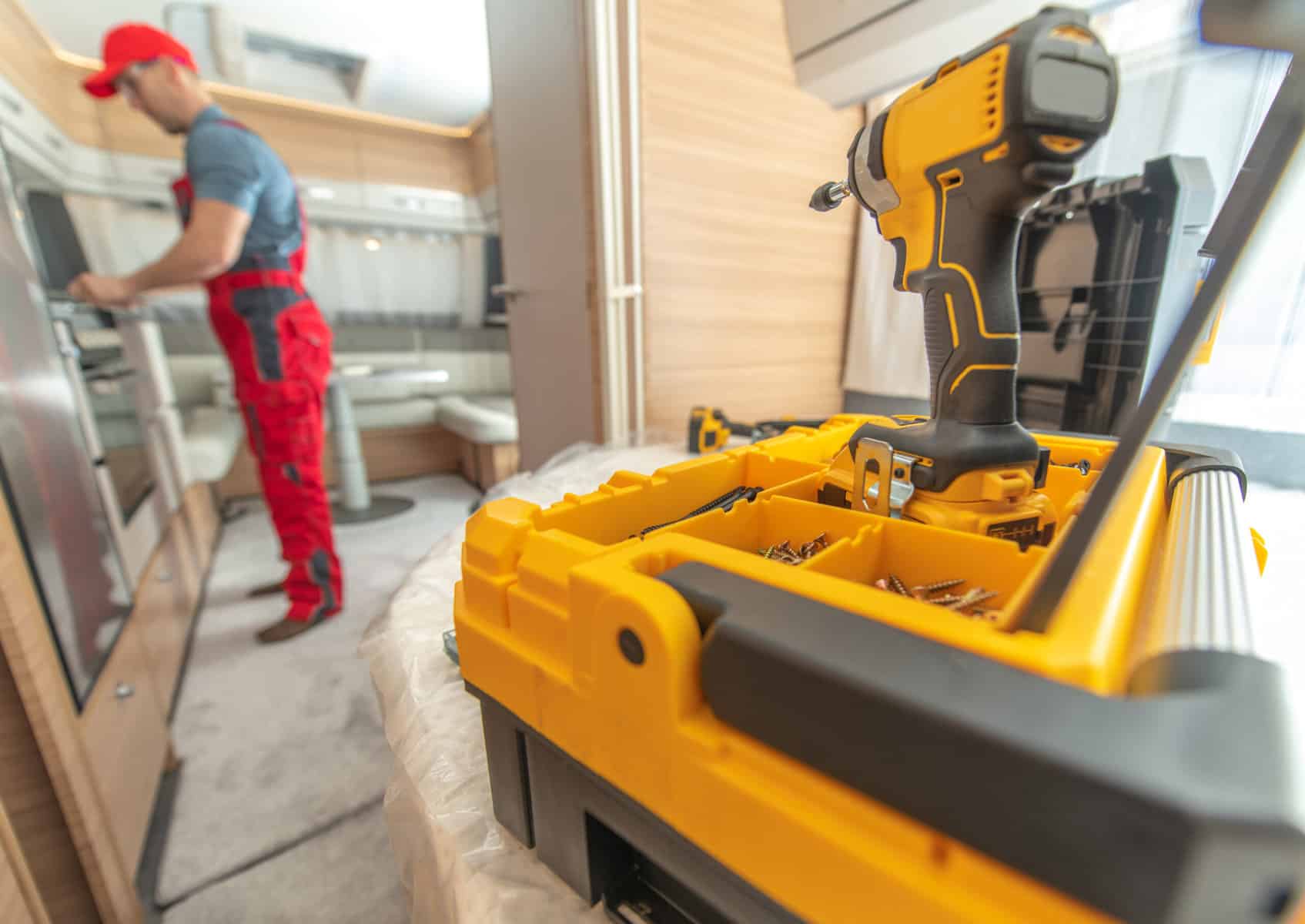Congratulations on your new (or new-to-you) RV! Your adventure awaits, and the RV newbie mistakes will begin. Well, maybe.
Driving an RV may be an old hat if you formerly drove a bus or another commercial vehicle, but for many of us, driving, parking, and living out of an RV will be a completely new experience.
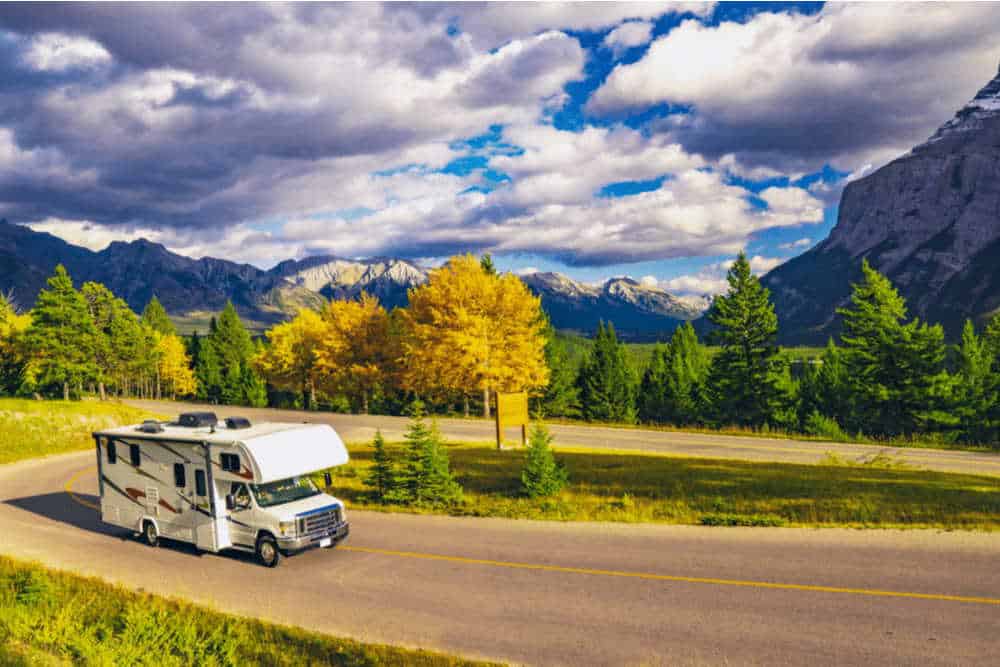
Understand How Tall Your Rig Is
Of all the RV newbie mistakes, this one is critical. Once you’re on the highway, you can be pretty confident that your rig will clear overpasses and bridges; these roadways are built for big rigs, and most of those are taller than even the largest RV.
However, getting out and looking at your early RV trips is a good idea. If the highway is quiet, pull to the shoulder under an overpass and check out how much room you have.
Being fully aware of how tall your rig is will be extremely handy when you get into town and want to go through a drive-thru.
Practice Executing Turns
A car can cut corners; an RV cannot. You don’t want to drive over curbs while carrying a television, your coffee pot, and all your dishes.
Find an empty parking lot and stack straw bales to see just how far you have to pull into the intersection before you crank the wheel.
Consider also setting them up on the other side of the vehicle if you have a long stretch of the vehicle behind the back tires. You will have some swing of the back end, especially on a right turn.
Make sure you have a very good understanding of your clearances before traveling to a city or find yourself driving in heavy congestion. This is one of the RV newbie mistakes that can be avoided with practice.
Avoiding the Porpoise
When you have a shorter RV, there is a chance that either your truck camper or your tow vehicle will porpoise.
During the porpoise motion, the front tires hit a bump, and the vehicle bounces at the front. Then the back tires hit a bump, and the back of the vehicle bounces. If these two bouncing rounds happen opposite each other, it can feel like one vehicle is going to pull the other right up off the road.
Weight dispersal is critical to avoiding porpoises. If you’re towing a small camping trailer loaded to the hilt while the back of your pickup is empty, a simple hard brake can get things bouncing.
Get your vehicle weighed on each axle to ensure you balance things. You may need to upgrade the suspension on your hauling or towing vehicle, and your trailer may need new or better shocks.
Don’t Overbuy
When we take a plane trip to a new place, we need to buy all the stuff we’ll need before we go. Keep a bit of space inside your suitcase for memorabilia and you’re all set.
However, on an RV trip, you’ll actually save gas and worry if you can travel as light as possible. If you have a six-hour drive, split it into two days.
Consider staying at a truck stop the first night so you can get up, shower, grab a cup of coffee, and get back on the road.
When you get closer to your campground or boondocking spot, you can
- fuel up, especially if you plan to run a generator
- fill up your water tanks
- load up on groceries
- buy firewood
Always make sure you can have a campfire before you purchase any firewood, and never carry firewood from your home location to your intended campsite.
There are bugs in your area that may be controlled by cold winters or dry summer heat that will thrive year-round in your travel destination. Don’t spread pests.
Use New Gear for Short Trips
If you’ve been struggling with handling your RV and decide to upgrade the suspension, take a short trip on your new airbags or shocks.
Just as you wouldn’t take a long hike in brand new boots, a big upgrade to your suspension may eventually handle better, but it will certainly handle differently when you first get your rig on the road.
Leave in the middle of the morning so you can avoid hard braking on busy roads. Allow for plenty of time to accelerate, and get out on uncluttered roads as soon as you can so you can get the feel for your newly suspended rig.
If you changed out your water tank location or dispersal, your rig may feel much more balanced. However, if you were used to it pulling before, that change will take time to get used to.
Tire Considerations
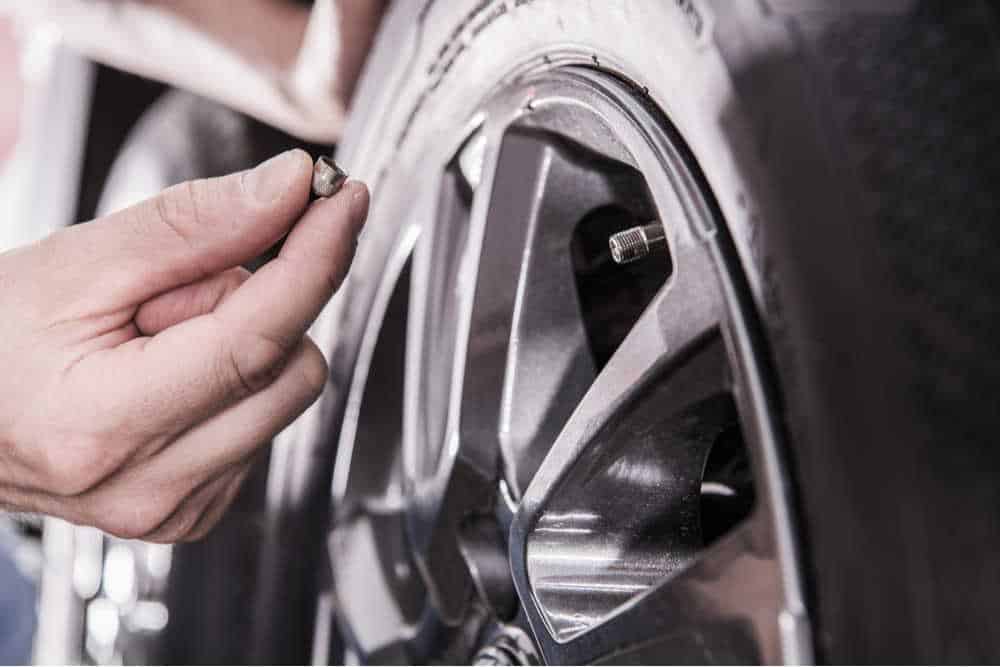
This is another one of the RV newbie mistakes that can hamper safety. If you get a great deal on a new rig, check the date on the tires. Near the rim of the tire, you’ll see DOT, followed by numbers and letters. The last four will tell you two things.
The first two letters indicate a week. The last two numbers indicate a year.
If the number is 2612, the tires were manufactured in the summer of 2012. Road wear can damage tires, but they can also decay over time.
If they’re more than five years old, replace them. Also, make sure you have a full-size spare. If you need one for your trailer and your tow vehicle, make the investment.
For those who plan to do some serious boondocking out in the backcountry, consider getting UV protective tire covers to keep the sun off your tires.
You can also save yourself some stress by adding a remote tire pressure monitoring system.
This tool is actually quite easy to install; you just replace the caps on your tires with the removed checkers and you’ll get a heads-up if something is not properly pressured.
Conserve, Conserve, Conserve
If you’re headed out for a long stretch of camping or boondocking, consolidate your activities to avoid using too much power or water.
If you have a generator and like to watch the morning news, make sure you also make coffee and heat up water for dishes and showers at the same time.
An RV is more than just a house on wheels. If you are interested in getting deep into the woods to get out of the heat or far into the desert to forget about snow, you can find deep peace in the silence.
Consolidate activities that will take fuel or water so you can enjoy the solitude when you’re done.
To that end, you may need to be prepared to change some habits. Long hot showers won’t work if you want to boondock for two weeks. For your first trip, consider camping near a lake and enjoying a daily swim.
Black Tanks…
So, the yucky part. If you’ve recently purchased your rig, whether new or used, put plain water in each tank and let it sit for a few hours or overnight.
In the morning, check under the tanks and at the seals to make sure there have been no leaks from fresh, gray, or black.
Now you can practice with the hoses. Designate a spot for your black tank hose and never, ever put it anywhere else. Invest in thin gloves that will allow you to manipulate the connections without fumbling.
Get in the habit of releasing a bit of gray water to make sure the connection is sound, closing the gray, dumping the black, then dumping the rest of the gray to clear the hose.
Invest in a clear connection junction to attach at the hose bib coming off your rig. An elevation track, which will fold up very small when not in use, is also helpful to avoid a low spot in the drain hose. No, this won’s be pretty.
However, if the hose gets clogged, you really want to know as soon as possible. Many long-time RVers are in the habit of driving for a bit to stir up the blank tank so all the waste will flow easily. For a first-timer, the key is to dump early and dump often. Don’t avoid this and overload your black tank.
RV newbie Mistakes Final Thoughts
Owning an RV can radically open up your travel opportunities. Do plan your trips so the primary driver isn’t pushed too hard.
Book your campsite early and get there in the daylight. Use cell phones with your travel partner or a friend to make sure you’re backing properly if needed, and don’t rush. With careful planning and driving practice, you can avoid many RV newbie mistakes.

